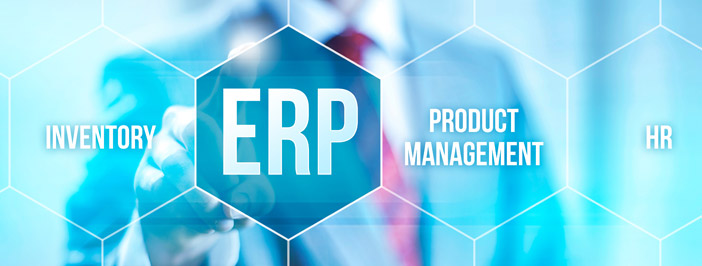Answers to 6 Fundamental ERP Consulting Questions
Whether you’re new to the concept of ERP, are looking to implement ERP software, or evaluating the value of your current ERP system – you probably have some basic questions about ERP consulting and the implementation process.
We’re addressing those fundamental questions, in hopes of helping you better understand what you can expect from working with an ERP consulting firm:
What is ERP?
ERP stands for “enterprise resource planning.” Enterprise resource planning is an integrated series of core business processes. These processes include everything from product purchasing and manufacturing, to marketing and sales.
Enterprise resource planning doesn’t have a concrete definition, the way one might want or expect. ERP typically just refers to a category of business software which is used to automate a broad variety of back-office functions.
Do I Need an ERP System?
If your business uses multiple softwares or applications to manage your accounting, inventory, customer information, and more – you’ll benefit greatly from an ERP system.
An ERP system integrates all of your business functions into a single database, which saves significant time and money in the long-run. Ultimately, an ERP system provides the advantages of cloud accounting software, with much greater functionality than an accounting software like QuickBooks.
What is ERP Consulting?
ERP consulting is the combination of services associated with implementing an ERP system. ERP consulting can encompass everything from initial business auditing and ERP system selection, to on-going training, support and workflow optimization.
Do I Need ERP Consulting?
If you’re unsure as to whether you should be using an ERP system, which ERP system you should be using, or if you’re getting the most out of your current cloud accounting or ERP software – you can benefit from ERP consulting. Similarly, if you’ve already decided to make the decision to adopt a new ERP system, an ERP consultant will be able to better manage your implementation project.
The type of ERP consultant you should hire depends on the ERP system you want to implement. If you want to implement either Intacct or Microsoft Dynamics, you’ll need to hire an ERP consulting firm that specializes in Intacct or Microsoft Dynamics implementations.
How Long Will My ERP Implementation Take?
The length of time your ERP implementation will take depends on the size of your company, complexity of the system being installed, number of end users, and more. There’s no “one size fits all” answer to this question. To determine the exact length of time your ERP implementation will take, you’ll need to be transparent and forthright with your ERP consultant regarding all of your business processes and needs.
However, generally speaking, an ERP implementation takes a minimum of 6 months. If your company is small and nimble, it may take only 2-3 months. But don’t be surprised if your ERP consultant tells you it may take 2 years or more for full deployment. Again, it depends on a variety of factors.
How Much is All of This Going to Cost?
This is another question that depends on the size of your business, complexity of the system being installed, number of end users, and more. A small professional service organization requiring a basic implementation will end up paying considerably less, while a mid-size manufacturing company may end up paying anywhere between $150,000 – $750,000. (However, that’s the range for an on-premise implementation. Cloud-based solutions tend to save businesses considerable amounts of money. And ultimately, the time and efficiency savings are worth it in the long-run!)
If you’re considering ERP consulting for your business, or implementing either Intacct or Microsoft Dynamics, contact us at Alta Vista Technology. We’ll be happy to help you better understand the reality of how long it will take and what it’s going to cost your business.



